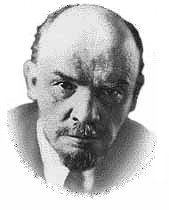
WHEN I HAVE FEARS THAT I MAY CEASE TO BE
JOHN KEATS
When I have fears that I may cease to be
Before my pen has glean'd my teeming brain,
Before high-piled books, in charactery,
Hold like rich garners the full ripen'd grain;
When I behold, upon the night's starr'd face,
Huge cloudy symbols of a high romance,
And think that I may never live to trace
Their shadows, with the magic hand of chance;
And when I feel, fair creature of an hour,
That I shall never look upon thee more,
Never have relish in the faery power
Of unreflecting love;--then on the shore
Of the wide world I stand alone, and think
Till love and fame to nothingness do sink.
The repetition of the word ‘when’ has the effect of making the reader want to read on to discover the answer to what happens ‘then’, while the repetition of ‘before’ increases this sense of tension. The use of ‘never’ seems to lead the reader towards expecting the worst, and the mood is gradually blackened until at the end there is a feeling of desolation and fatalism.
In the octave the poet is reflecting on the transience of life; how his talents may be prematurely stilled, and how he may never experience the true nature of love or ‘high romance’. This inward reflection in the octave turns, in the sestet, to an outward statement directed at his love (‘fair creature of an hour’) expressing fear of love’s loss. The turn between the octave and the sestet ‘And when I feel..’ signals to the reader that the questions asked in the octave are about to be answered. Finally, the with the words ‘then on the shore’, the poet tells us how he comes to terms with whatever fate holds for him.
The rhyming of ‘brain’ and ‘grain’ emphasise the poet’s talents while, in the second quatrain, ‘face’ and ‘trace’ emphasise the poet’s skill at capturing nature’s beauty. The tone of the third quatrain is downbeat with the sadder sounds of ‘hour’, ‘power’, ‘more’, and ‘shore’.
The poet’s message in the final couplet seems to be that he will put no great store by transient fame or shallow love, and there is an acceptance of whatever fate will bring, with the emphasis on thought and solitude.
Now, the above is what I wrote for my Open Univerity analysis of this poem by Keats but what, dear reader, do I really feel? Well, you've got think, haven't yer, that the 'fair creature of an hour' - 's a hooker i'n'it. I mean stands to reason du'n'it! I know short time usually means thirty minutes but after he was waxing lyrical for a while it prob'ly took up the hour. She was prob'ly right browned off, prob'ly she was thinking 'I hope I shall never see thee more. You're doing me out of my bizness, you are. It's so brisk these days if I had anuvver pair of legs I 'd open a branch in Peckham', and you're lying back there going on about the faery power. I knew you was a poof straight off'. All poets are, stands to reason'.
Am I right, or am I right!


1 comment:
I had a student produce this theory in class today. There is little online to echo it, but I think you both may be right.
Post a Comment